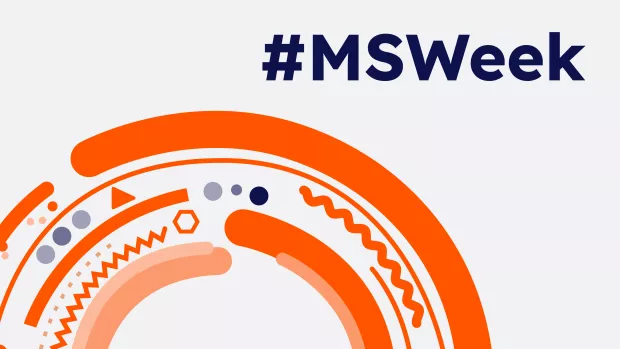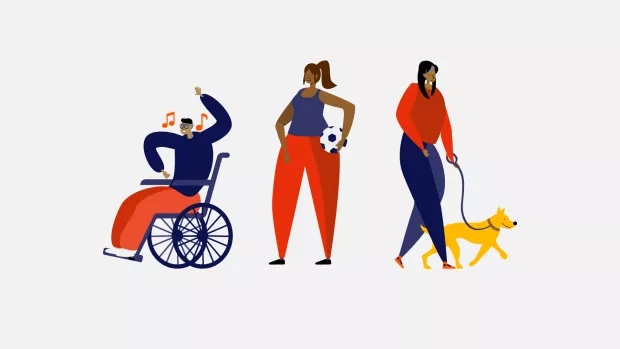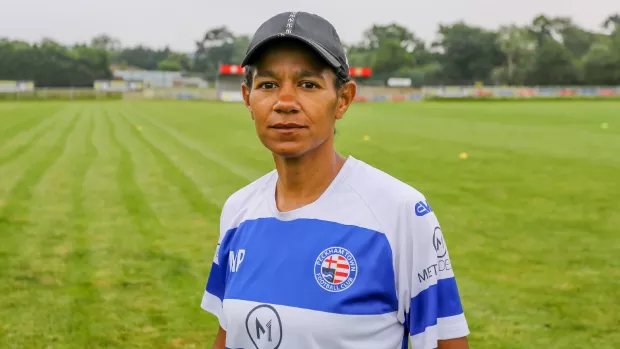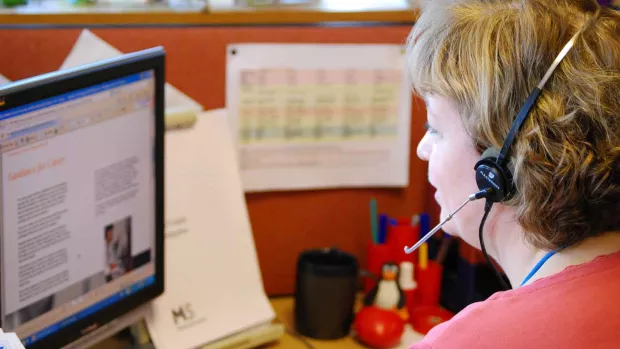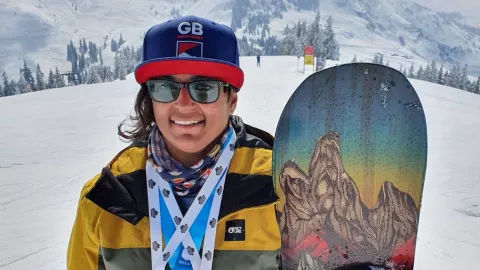
“I live every day with MS as it comes” – para snowboarder Nina Sparks
When she was diagnosed in 2021 snowboarder Nina Sparks had no idea what MS was. A planner by nature, she’s dealing with the uncertainty of MS by living more in the moment. With one big goal in mind: to compete in the 2026 Winter Paralympics.
My first symptom was going blind in one eye in September 2019, which was diagnosed as optic neuritis. Then, in September 2020 my feet went numb and the numbness travelled up my leg. I lost the ability to feel temperature. I could get on a heated chair lift and not feel a thing.
I was diagnosed while out in Austria – all of my medical notes were in German and I had to use Google translate to understand the information given to me!
When I translated it some of the translation was really bad. I had no idea what MS was. I did a lot of research online, including looking at the MS Society and MS Trust’s websites.
My mum and dad are both over 75 and they couldn’t travel to see me as the UK was still in lockdown then. Instead the team I was training with were checking in on me.
I left the UK feeling a fit and healthy person in 2020 and I came back with MS.
I can be fine, then I’ll crash
If people ask what MS is I tell them its nerve damage and every day is different.
I have a few MS symptoms that are consistent - my right foot is permanently numb. When I’m on my snowboard my left foot joins in the numb party! Sometimes I have numb, tingly hands. I can be fine in terms of energy levels, and then I’ll crash.
After my gym sessions I get a lot of cramping in my legs and I sometimes I think ‘why am I doing this?!’ But being classified as a para snowboarder has made it all worth it.
I’m struggling with my drop foot and have started to limp, but am looking into getting proper support with this.
I haven’t been consistently on treatment. I was prescribed 3 months of Copaxone (glatiramer acetate) at first. But then had no treatment for 3 months until I could see a neurologist when I was back in the UK, who then prescribed Aubagio (teriflunomide). I think it’s effective. But I am experiencing the side effect of losing my hair – although they say it usually grows back after a few months.
How MS has affected my sport
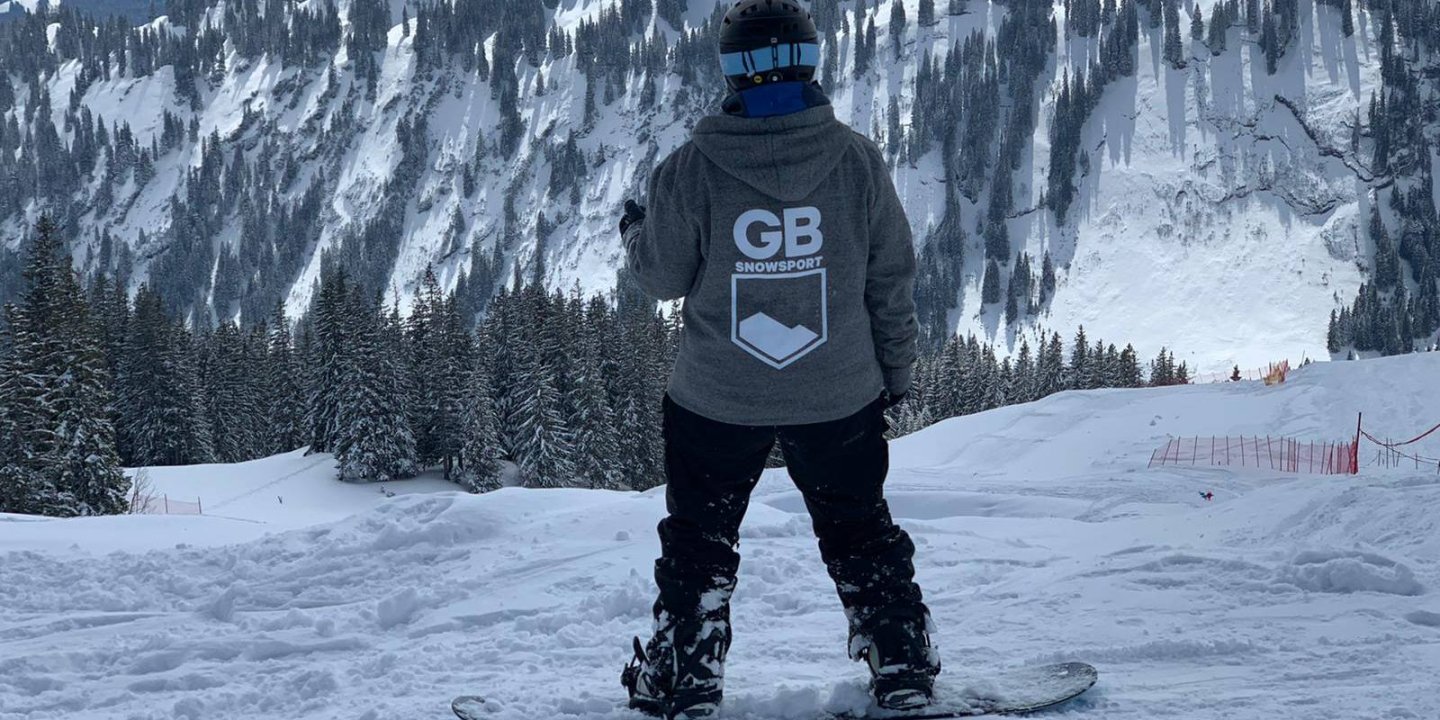
It’s definitely been a journey. Because of the numbness, from my knees down I feel like I’m hovering. I’ve had to relearn a lot. This time last year I could still remember what it was like to feel my feet. I was constantly frustrated. Now I’ve forgotten what that felt like. It’s taken a lot of work to get to where I am.
Joining the para sport community has been amazing – it’s really cool.
I felt I wasn’t disabled enough and then I got classified. This has made me understand a lot more about how the MS had affected my body!
GB Snowsport set up a development programme and I’ve been training with a coach who is really good. I feel like he has a sixth sense as he can tell when my MS is playing up. I’m early in my para career but I won 3 medals in the first month since I was classified.
Being a para athlete makes it possible to be a sports person even with a disability.
Uncertainty about the next relapse
I’m a planner but I don’t want to think about what will happen in the future yet. Having MS feels likes like a ticking time bomb. But you can either laugh or cry.
I don’t know what the next relapse will look like, so I enjoy what I can now.
I didn’t drive. But my diagnosis gave me a boost to learn, for when (and if) my mobility deteriorated. I applied for my blue badge, but I was thinking ‘I can snowboard, why should I get a badge?’ But I know it’s for the days when it’s is difficult.
My mobility has got worse but I can still do jumps on my snowboard and stay on my feet all day. I do get a bit sore, but when I’m snowboarding, I’m usually having too much fun to worry too much about my symptoms. However walking around an airport for 10 minutes exhausts me.
Since having MS, snowboarding has been everything to me. As long as I’m not shifting my weight from leg to leg, I’m fine.
I’m going to snowboard for as long as I can. It’s the closest thing you can get to flying!

